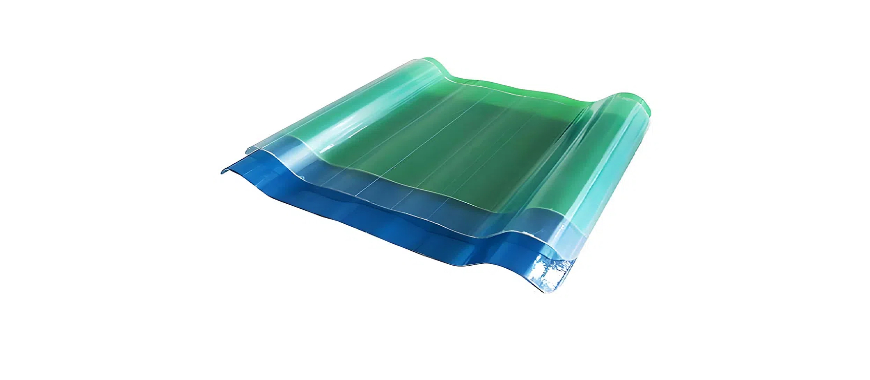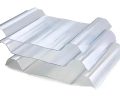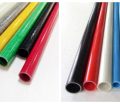
In the ongoing debate of what is lighter aluminum sheets or fiberglass sheets, both materials have distinct advantages that make them popular across various industries. Aluminum sheets are known for their strength and durability, while fiberglass sheets offer versatility and corrosion resistance. Understanding the weight differences between these two materials is crucial for industries such as construction and automotive, where material selection directly impacts efficiency, cost, and performance. For example, lighter materials can lead to improved fuel efficiency in vehicles and easier handling in construction applications. This article will delve into the properties of aluminum and fiberglass sheets, highlighting their weight differences and practical applications to help you make informed decisions.
What Is Lighter Aluminum Sheets or Fiberglass Sheets: What Are Aluminum Sheets?
Aluminum sheets are flat pieces of aluminum that are produced through a process of rolling, which can be subsequently cut to specific dimensions. These sheets come in various thicknesses, typically ranging from 0.008 to 0.250 inches, and are known for their excellent strength-to-weight ratio. This characteristic makes aluminum sheets a preferred choice in many industries where reducing weight is crucial without compromising structural integrity.
Aluminum sheets are composed primarily of aluminum alloy, which may contain small amounts of other elements such as silicon, copper, or magnesium to enhance specific properties like strength and corrosion resistance. The composition can vary based on the intended application, resulting in different grades of aluminum sheets tailored for specific uses.
Common applications of aluminum sheets include
- Construction: Used for roofing, siding, and structural components due to their lightweight properties and resistance to rust and corrosion.
- Automotive: Employed in vehicle manufacturing to reduce weight, improving fuel efficiency while maintaining safety standards.
- Aerospace: Utilized in aircraft structures where weight savings are critical.
- Packaging: Frequently used in the production of aluminum cans and foil due to its malleability and non-toxic nature.
In the ongoing discussion of what is lighter aluminum sheets or fiberglass sheets, aluminum sheets stand out for their combination of lightweight characteristics and durability, making them versatile across multiple applications.
High-Quality Aluminum Expanded Metal Grating for Industrial Use
What Is Lighter Aluminum Sheets or Fiberglass Sheets: What Are Fiberglass Sheets?
Fiberglass sheets are composite materials made from fine glass fibers that are woven together and bonded with a resin. This combination results in a lightweight, yet incredibly strong and durable product. The typical composition includes approximately 60% glass fibers and 40% resin, which can vary depending on the desired properties of the sheet, such as strength and flexibility. Fiberglass sheets are available in various thicknesses and can be produced in flat or curved forms, making them adaptable for different applications.
The versatility of fiberglass sheets has made them popular across multiple industries, including
- Construction: In the building sector, fiberglass sheets are often used for roofing, wall coverings, and insulation due to their excellent durability and weather resistance. They are particularly favored for their ability to resist rot and corrosion, making them a long-lasting choice for both residential and commercial buildings.
- Automotive: Fiberglass sheets are commonly employed in the manufacturing of vehicle components, such as body panels and structural parts. Their lightweight nature contributes to improved fuel efficiency while maintaining the strength required for safety and performance.
- Marine: In the boating industry, fiberglass sheets are extensively used for constructing hulls, decks, and other components. Their resistance to water, UV rays, and environmental factors makes them ideal for marine applications, ensuring longevity and reduced maintenance.
In the context of the debate on what is lighter aluminum sheets or fiberglass sheets, fiberglass sheets are recognized for their lightweight properties and robust performance, positioning them as a viable alternative to aluminum in various applications.
Fiberglass Fencing Solutions for Long-Lasting Outdoor Protection
Weight Comparison: Aluminum Sheets vs. Fiberglass Sheets – What is Lighter Aluminum Sheets or Fiberglass Sheets?
When considering what is lighter aluminum sheets or fiberglass sheets, it is essential to examine the specific weight characteristics of each material, particularly for common sizes and thicknesses. Understanding the weight differences is crucial for applications where weight plays a significant role in performance, such as in automotive and aerospace industries.
Weight Characteristics
- Aluminum Sheets: Aluminum is known for its lightweight nature, typically weighing around 2.5 grams per cubic centimeter (g/cm³). This low weight is one of the key advantages of aluminum, making it easy to handle and install.
- Fiberglass Sheets: Fiberglass sheets have a density ranging from 1.5 to 2.0 g/cm³, depending on their composition and manufacturing process. While they are generally lighter than many metals, they can still be heavier than aluminum when comparing sheets of equal dimensions.
To provide a clearer picture of the weight differences, the following table illustrates the weights of common sizes and thicknesses for both aluminum and fiberglass sheets:
| Material | Size (inches) | Thickness (inches) | Weight (lbs) |
|---|---|---|---|
| Aluminum Sheet | 48 x 96 | 0.125 | 4.5 |
| Aluminum Sheet | 48 x 96 | 0.250 | 9.0 |
| Aluminum Sheet | 48 x 96 | 0.500 | 18.0 |
| Fiberglass Sheet | 48 x 96 | 0.125 | 6.0 |
| Fiberglass Sheet | 48 x 96 | 0.250 | 12.0 |
| Fiberglass Sheet | 48 x 96 | 0.500 | 24.0 |
This table indicates that while aluminum sheets tend to be lighter than fiberglass sheets of similar dimensions and thicknesses, the specific application and requirements may dictate which material is more suitable. When answering what is lighter aluminum sheets or fiberglass sheets, it becomes evident that aluminum holds the advantage in terms of weight, making it preferable for situations where minimizing weight is critical. However, fiberglass sheets offer other benefits, such as superior durability and resistance to environmental factors, which can influence the decision based on the specific needs of the project.
What is Lighter Aluminum Sheets or Fiberglass Sheets: Cost Analysis
When evaluating what is lighter aluminum sheets or fiberglass sheets, it is also essential to consider the costs associated with each material. The price factor plays a significant role in determining which option is best suited for specific applications, particularly in construction and manufacturing.
Initial Costs
- Aluminum Sheets: Generally, aluminum sheets have a moderate initial cost, typically ranging from $1 to $5 per square foot, depending on the thickness and alloy type. The price can increase for specialty grades or finishes. Due to their lightweight nature, they are often cheaper to transport and install, which can lower overall project costs.
- Fiberglass Sheets: On the other hand, fiberglass sheets usually come at a higher upfront cost, averaging between $2 to $10 per square foot, depending on thickness, quality, and manufacturing processes. While the initial investment might be greater, fiberglass sheets offer unique benefits, such as superior resistance to moisture and corrosion, which can be advantageous in specific environments.
Long-Term Savings
When assessing what is lighter aluminum sheets or fiberglass sheets, it is crucial to evaluate the long-term savings related to durability and maintenance:
- Aluminum Sheets: While they are generally durable, aluminum can be susceptible to corrosion, especially in harsh environments. Over time, maintenance may be required to prevent oxidation, which can incur additional costs. However, their lightweight nature can lead to lower transportation and installation costs.
- Fiberglass Sheets: Although the initial costs are higher, fiberglass sheets often prove to be more cost-effective in the long run due to their durability and low maintenance requirements. They resist UV rays, moisture, and chemicals, reducing the need for repairs and replacements. This resilience can lead to significant savings over the lifespan of the product.
When answering what is lighter aluminum sheets or fiberglass sheets, one must also weigh the initial costs against the potential long-term savings associated with each material. While aluminum may have lower upfront costs, fiberglass sheets offer durability and maintenance advantages that can lead to greater cost efficiency over time, making them a valuable consideration in the decision-making process.
Advantages of Using Fiberglass Composite Panel in Construction
What Is Lighter Aluminum Sheets or Fiberglass Sheets: Strength Comparison
In the ongoing discussion about what is lighter aluminum sheets of fiberglass sheets, it’s crucial to also evaluate the strength properties of these materials. Strength plays a significant role in determining the suitability of a material for various applications, particularly in construction and manufacturing.
Strength Properties of Aluminum Sheets
- Tensile Strength: Aluminum is known for its impressive tensile strength, which makes it highly resistant to deformation under load. Its strength-to-weight ratio allows aluminum sheets to provide structural integrity while remaining lightweight.
- Impact Resistance: While aluminum sheets can withstand impacts, they are more prone to denting compared to fiberglass. The metal may also suffer from fatigue over time, especially in applications involving constant movement or stress.
Strength Properties of Fiberglass Sheets
- Flexural Strength: Fiberglass sheets exhibit high flexural strength, making them ideal for applications where bending or flexing occurs. This property allows fiberglass to absorb energy and resist cracking, making it advantageous in environments subject to dynamic loads.
- Durability: Fiberglass is resistant to corrosion, moisture, and UV rays, which contributes to its long-lasting performance. This durability means that fiberglass sheets maintain their strength and structural integrity over time, even in harsh conditions.
Scenarios Where One Material May Outperform the Other
- Construction Applications: In building frameworks that require lightweight yet strong materials, aluminum may be preferred for its high tensile strength. However, in areas exposed to moisture or where flexural strength is essential, fiberglass sheets may be the better option due to their resistance to environmental degradation.
- Automotive and Marine Uses: In the automotive industry, where weight reduction is critical for fuel efficiency, aluminum sheets are often favored. However, in marine applications where exposure to saltwater and humidity is prevalent, fiberglass sheets provide enhanced durability and strength against corrosion.
When considering what is lighter aluminum sheets or fiberglass sheets, it is essential to evaluate not only their weight but also their respective strength properties. Each material has unique advantages that make it suitable for specific scenarios, highlighting the importance of choosing the right material based on the application and environmental conditions.
What is Lighter Aluminum Sheets or Fiberglass Sheets: Practical Applications
When exploring what is lighter aluminum sheets or fiberglass sheets, it’s essential to consider how the weight differences impact their usage across various applications. The choice between these materials can significantly affect performance, efficiency, and functionality in practical scenarios.
Impact of Weight Differences
- Ladders: Aluminum ladders are favored for their lightweight nature, making them easy to transport and set up. Their strength ensures they can support substantial weight, ideal for construction and maintenance tasks. Conversely, fiberglass ladders provide the advantage of electrical insulation, making them safer for use in environments where electrical hazards are present.
- Car Bodies: In automotive manufacturing, the weight of the material directly affects fuel efficiency and overall performance. Aluminum sheets are increasingly used in car bodies to reduce weight while maintaining strength and rigidity. On the other hand, fiberglass is also employed for specific components, such as body panels, due to its excellent strength-to-weight ratio and ability to be molded into complex shapes.
- Construction Materials: In construction, both aluminum and fiberglass sheets find their place. Aluminum’s resistance to corrosion makes it suitable for structural components in outdoor environments. Meanwhile, fiberglass sheets are often utilized for insulation, roofing, and decorative facades because of their durability and ability to withstand harsh weather conditions.
Advantages of Each Material in Practical Scenarios
- Aluminum Sheets:
- Lightweight and easy to handle.
- High tensile strength and durability.
- Excellent corrosion resistance, ideal for outdoor applications.
- Fiberglass Sheets:
- Lightweight yet strong, offering flexibility in design.
- Resistant to moisture, UV rays, and chemicals.
- Provides better thermal insulation compared to aluminum.
Understanding what is lighter aluminum sheets or fiberglass sheets is crucial in determining their practical applications. Each material has distinct advantages that cater to specific industry needs, emphasizing the importance of selecting the right material based on the intended use and environmental conditions. By evaluating these factors, businesses and individuals can optimize their choices for greater efficiency and effectiveness in their projects.
FAQs about What Is Lighter Aluminum Sheets Or Fiberglass Sheets
Fiberglass is generally lighter than aluminum when comparing similar sizes and thicknesses. Fiberglass is composed of glass fibers and resin, resulting in a lightweight material that provides strength and durability. Aluminum, while also lightweight compared to many metals, can be heavier than fiberglass depending on the gauge and alloy. However, the overall weight can vary significantly based on the specific application and manufacturing process.
Fiberglass can be lighter or heavier than sheet metal, depending on the thickness and type of the sheet metal used. Standard sheet metal, made from materials like steel or aluminum, tends to be denser. For example, a thin sheet of fiberglass may weigh less than a thicker sheet of steel, but it may be heavier than a very thin aluminum sheet. It’s essential to compare specific measurements to determine which material is heavier for a particular application.
Fiberglass is considered a lightweight material, especially when compared to traditional metals such as steel. Its lightweight nature makes it an attractive option for many applications, including automotive and marine industries, where reducing weight is essential for performance and efficiency. Additionally, the weight of fiberglass varies based on its composition, thickness, and type, but generally, it is lightweight enough for easy handling and installation.
When it comes to car manufacturing, aluminum is often chosen for its lightweight properties, which contribute to better fuel efficiency and performance. However, fiberglass components, such as body panels, are also used in automotive design to reduce weight. In general, pure aluminum is lighter than fiberglass, but the combination of fiberglass components can lead to significant weight savings in vehicles. Thus, while a car made entirely of aluminum will likely weigh less than one made with fiberglass components, the overall weight difference depends on the design and material choices of the vehicle.

As the editor of GangLong Fiberglass, I have years of experience and in-depth research, focusing on cable tray products, fiberglass solutions, and grille systems. I incorporate years of industry insights and practical experience into every content, committed to promoting the progress of the industry. At GangLong Fiberglass, my commitment is reflected in every product, from innovative cable trays to durable fiberglass solutions and sturdy grille systems. As an authoritative voice in the industry, my goal is to provide valuable information to professionals and businesses and promote forward-looking solutions.


